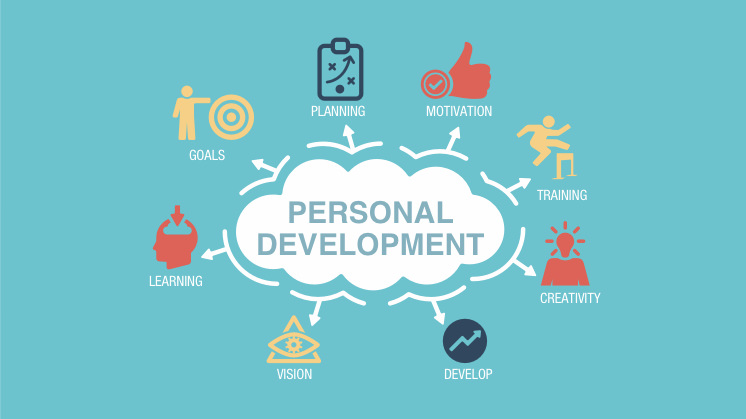
The enigmatic workings of the human brain have fascinated scholars since ancient times, yet for many of us, harnessing its full potential remains a mystery. Fortunately, modern science has unveiled a treasure trove of psychological insights, unveiling four potent strategies that serve as invaluable tools for navigating life’s complexities with greater ease and efficacy. These psychological tricks, akin to cheat codes in a video game, offer shortcuts to understanding human behavior and overcoming obstacles with finesse.
Let’s delve into these transformative techniques:
Maintain Calm Amidst Conflict:
In moments of heightened emotions, particularly when faced with someone’s raised voice, maintaining composure is paramount. Yelling often serves as a means of exerting control or intimidation, but succumbing to its influence only perpetuates discord and erodes relationships in the long run.
To navigate such situations effectively, it’s crucial to:
Refrain from mirroring the aggressive behavior, instead cultivating a calm demeanor.
Take a step back to assess the situation and decide on an appropriate response.
Avoid conceding to demands or engaging in arguments fueled by emotion.
Assert boundaries by calmly expressing that yelling is unacceptable.
Take a temporary break to collect thoughts and de-escalate tension.
By responding with composure and assertiveness, we not only defuse volatile situations but also uphold our dignity and foster healthier interactions.
Expressive Writing for Emotional Release:
The practice of expressive writing serves as a therapeutic outlet for processing and releasing pent-up emotions. Similar to Anne Frank’s poignant diary entries during her family’s harrowing ordeal, expressive writing provides a safe space to confront and examine our innermost thoughts.
Engaging in this practice involves:
Writing freely without inhibition or concern for grammar or structure.
Allowing thoughts and emotions to flow uninhibitedly onto the page.
Reflecting on the written content to gain insights into underlying feelings and concerns.
Adopting different perspectives, such as writing from the viewpoint of a younger or older self.
By embracing expressive writing, we gain clarity, catharsis, and a deeper understanding of our emotional landscape, paving the way for enhanced well-being and self-awareness.
Harness the Power of Posture:
Our posture not only influences our physical presence but also exerts a profound impact on our psychological state and cognitive function. Adopting an upright, confident posture not only enhances our external impression but also fosters internal confidence and clarity of thought.
Key insights regarding posture and confidence include:
Sitting or standing with upright posture signals confidence and competence to both ourselves and others.
Power poses, characterized by expansive body language, stimulate the production of self-assurance-boosting hormones like testosterone.
Maintaining good posture optimizes oxygen flow to the brain, enhancing cognitive function and emotional regulation.
By conscientiously cultivating good posture, we can elevate our mood, sharpen our thinking, and project an air of confidence that resonates with others.
Solicit Help with Grace and Gratitude:
Asking for assistance can be challenging, often triggering feelings of vulnerability or inadequacy. However, recognizing the inherent interdependence of human relationships and approaching help-seeking with humility and appreciation can transform this process into a source of strength and connection.

Effective strategies for soliciting help include:
Clearly articulating the nature of the request and the specific assistance needed.
Refraining from apologizing or downplaying the importance of the request.
Making personalized requests, highlighting the unique skills or expertise of the individual being asked.
Demonstrating appreciation by sharing the positive impact of their assistance and expressing gratitude.
By embracing vulnerability and seeking support when needed, we not only alleviate burdens but also deepen our connections with others, fostering a culture of mutual support and collaboration.
In conclusion, these psychological tricks offer powerful tools for navigating life’s challenges with grace and resilience. By mastering the art of emotional regulation, expressive communication, confident posture, and gracious help-seeking, we empower ourselves to transcend obstacles, cultivate meaningful relationships, and embrace a future brimming with possibility.
Some Physchological facts
Lowering the volume of the car radio while navigating makes logical sense, as the human mind struggles to concentrate on multiple tasks simultaneously.
Sharing your goals with others may hinder your chances of success, as research indicates a decrease in motivation when goals are publicized.
Consuming chocolate triggers the release of neurotransmitters associated with happiness, akin to the effects of romantic love.
Human memory typically retains around 7 +/- 2 pieces of information at a time, including numerical data, but this capacity can be expanded through techniques such as chunking.
The genre of music you listen to can influence your perception of the world around you.
Dreams typically feature faces of individuals encountered in real life, even fleetingly, as the mind cannot generate unfamiliar faces.
Despite popular belief, multitasking is not feasible, as the brain cannot effectively process multiple tasks simultaneously.
Interactions with others shape their perceptions of us, influencing subsequent behaviors towards us and reinforcing our self-beliefs, a phenomenon known as the “Pygmalion Effect” or “The Self-Fulfilling Prophecy.”
Fatigue can enhance creativity, with individuals often exhibiting heightened creative abilities when tired.
Surrounding yourself with positive, joyful individuals can contribute to your own happiness and well-being.
Experiencing feelings of neglect triggers chemical responses in the brain similar to those elicited by physical injury.
Engaging in sarcasm may enhance cognitive abilities and creativity, while adeptness in identifying sarcasm correlates with better interpersonal perception skills.
Individuals capable of delaying gratification demonstrate higher probabilities of achieving success in various aspects of life.
Children today experience higher levels of stress compared to psychiatric patients in the 1950s.
Although the brain constitutes only 2% of body mass, it consumes approximately 20% of the body’s energy, water, and oxygen intake.
Delaying the expression of romantic feelings often intensifies emotions towards the individual over time.
There have been no reported cases of individuals born blind developing schizophrenia.
Money contributes to happiness up to an annual income of $75,000, beyond which its impact is contingent on relative wealth compared to others.
Excessive sleeping tends to trigger a heightened desire for additional sleep.